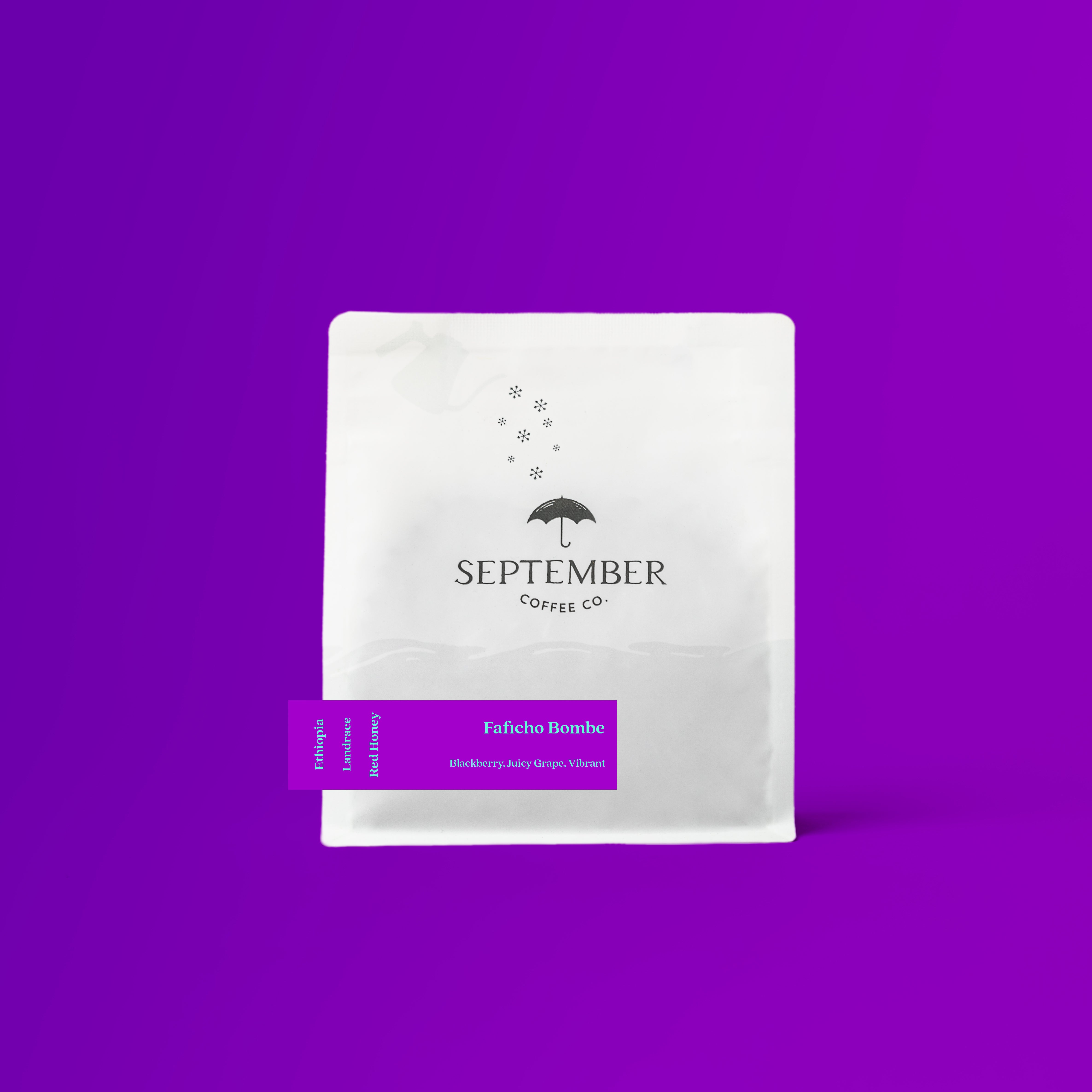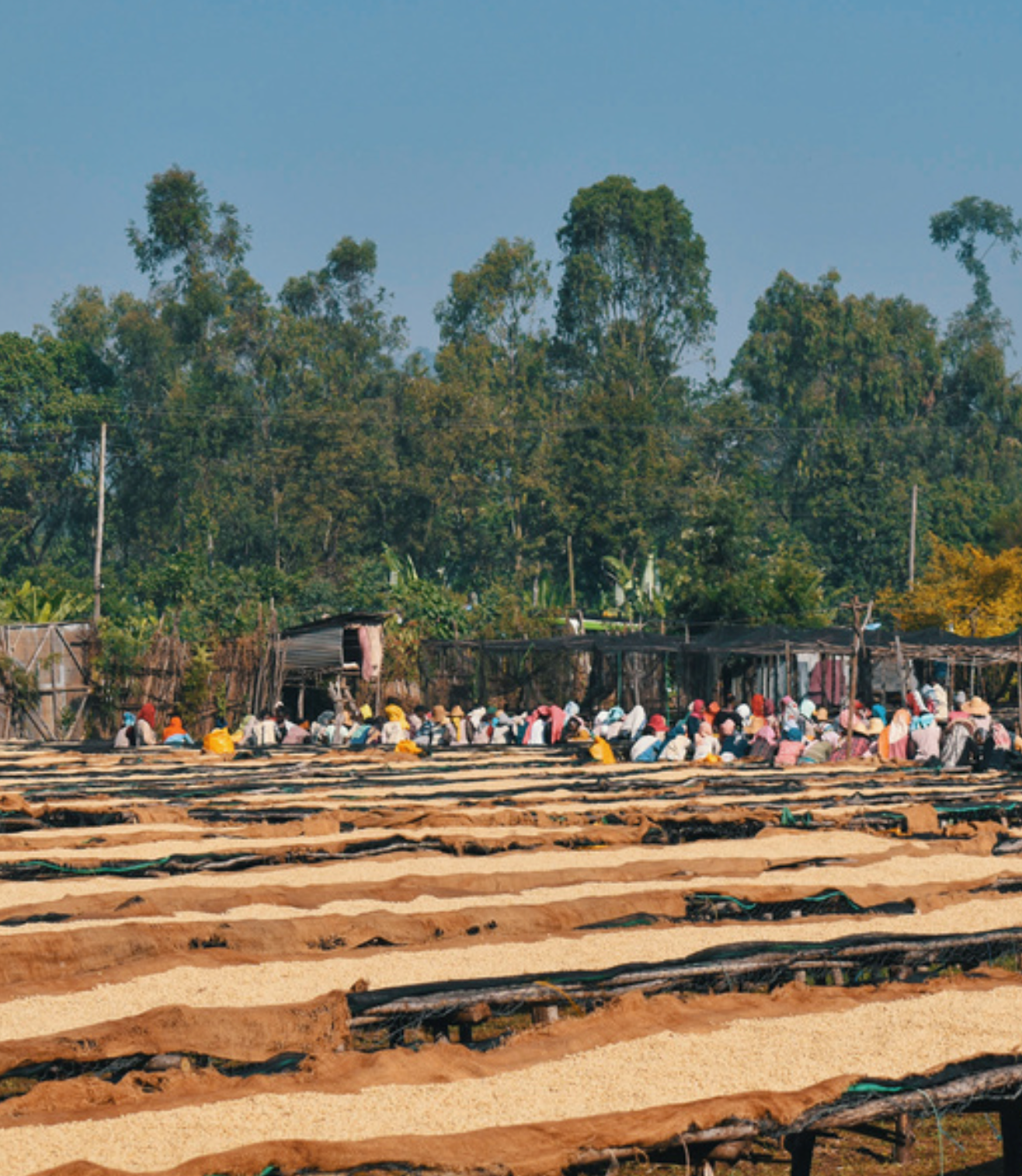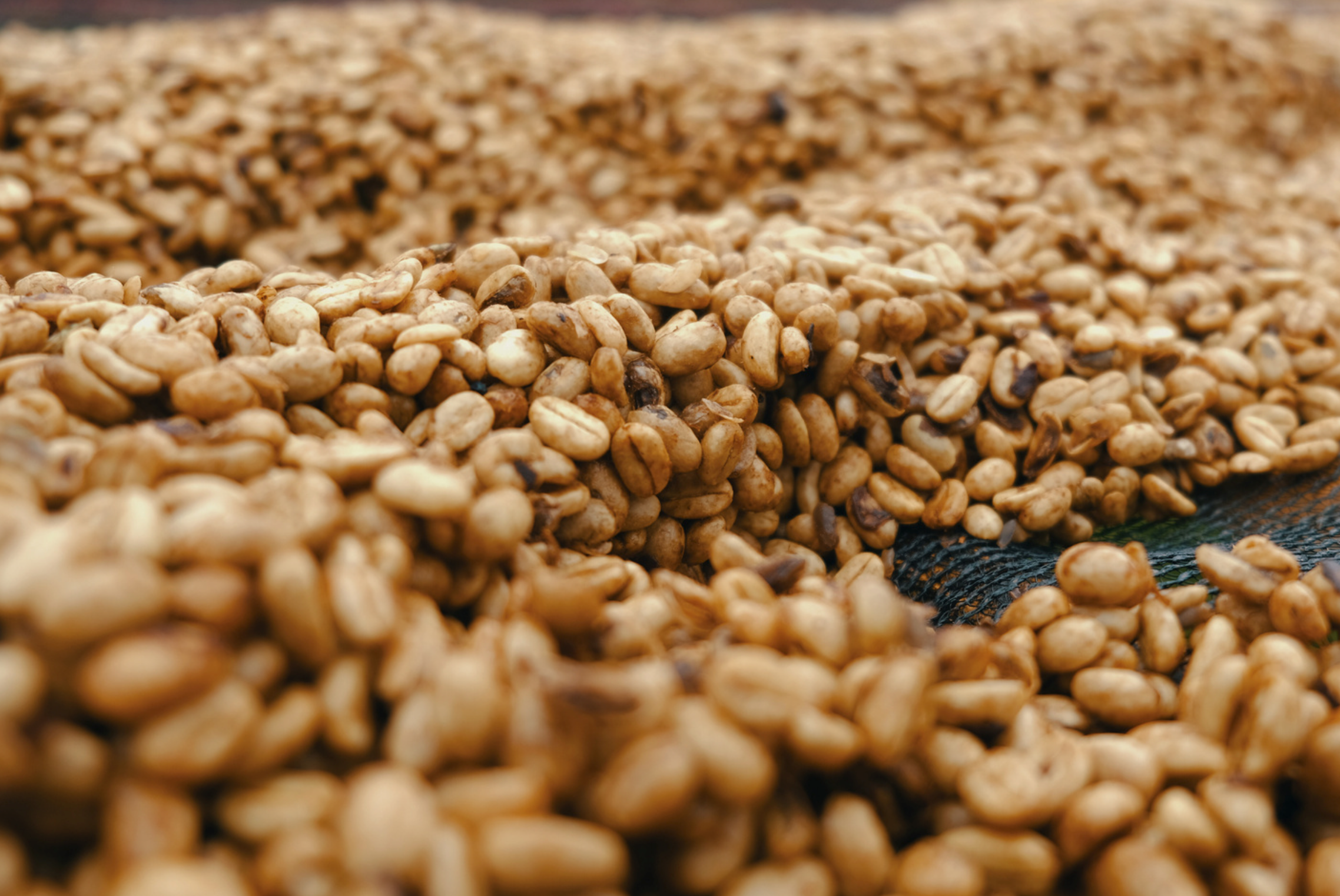


Faficho Bombe - Ethiopia (Extra-Light)
Our first year working with this Faficho Bombe lot. This unique Red Honey lot is very juicy and sweet with a bright vibrant acidity and a purple grape sweetness. This is a limited Extra-Light roast variant Faficho Bombe. We recommend this roast for experienced brewers only, willing to wait 45+ days after roast for best results. Extra-Light sacrifices initial sweetness and intensity for clarity. We recommend our Light (regular) roast for most specialty brewers.
200G
Faficho Bombe - Ethiopia (Extra-Light)
September Coffee Roastery
119 Iber Road
Unit 9
Ottawa ON K2S 1E7
Canada
- Variety: Landrace
- Country: Ethiopia
- Region: Sidama, Bensa
- Process: Red Honey
- Altitude: 1800 MASL
- Harvest: 2024
- Roast Level: Light
 In the cup
In the cup
In the cup we get vibrant profile of dark berries like blackberry, juicy purple grape and cherry. This coffee has a vibrant citric & lime acidity and a silky body.
 Funky
Funky
 Experimental
Experimental
 About The Producer
About The Producer
Producers in the Bombe region live in the lush and elevated valley of the Bombe mountain, surrounded by stunning landscapes. Bombe coffees are known for their density and rich flavour profiles. They often contain a higher proportion of smaller screen sizes, primarily 14 and 15, setting them apart from those from Shantawene and Keramo. Bombe coffees also feature a slightly higher percentage of the Mikicho variety, recognizable by its larger cherries, distinctive wavy leaves, and elongated, canoe-shaped seeds. Mikicho, closely related to the famous Gesha variety, contributes to the Bombe coffees' renowned tropical fruit notes and delicate floral undertones, which are apparent in every cup.
 Processing
Processing
The Red Honey process begins with ripe cherries harvested from smallholder producers and brought to the washing station. Here, the cherries are placed in float tanks, which help remove the lower-density fruit and select the best quality cherries. After sorting, a second round of hand sorting is performed on the higher density cherries to ensure uniformity for pulping. For honey processed coffees, the disc pulper is carefully calibrated to enhance control and efficiency during pulping, which is done slowly to minimize damage to the parchment and seeds while maintaining the mucilage content before drying. After pulping, the parchment designated for honey processing undergoes a brief fermentation period. The mucilage-rich beans are then transferred to shaded drying beds, where they are gradually dried under a shade canopy with excellent airflow. This shaded drying method adds 4 to 5 extra days to the drying time, ensuring an even distribution of moisture throughout the beans and achieving the desired water activity. While shade drying offers more control than sun-drying, it requires precise timing to cover the parchment at the right moments. Achieving consistent drying is crucial for producing high-quality honey processed coffees.
 Variety
Variety
Landrace is an umbrella term that refers to all the coffee varietals endemic to Ethiopia. As believed to be the birthplace of coffee, the trees have been growing and cross-breeding for centuries in this country. As a result, today, there are numerous sub-varietals with some common genetics but slightly different behaviour and taste. Relatively recently, in the last few decades, there has been an organized effort to research and identify different endemic varietals growing in Ethiopia by name, disease resilience and yield production.
